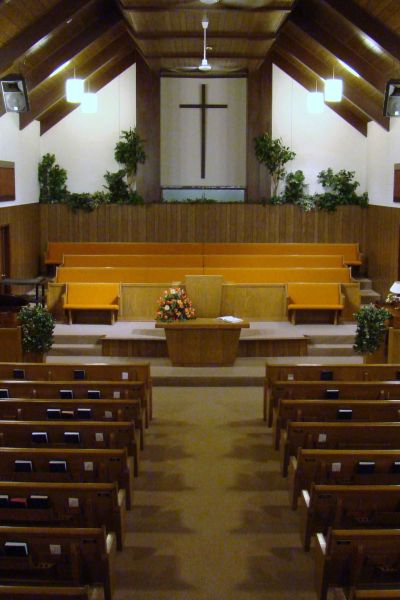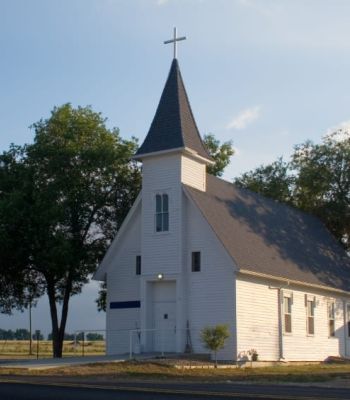Starting Your Own Church

Getting Started
Beginning a church of your own is a rewarding and soul-enriching process, but at the same time it is a very significant undertaking. The ULC is not able to provide counsel or legal advice to you, but we are able to point you towards information that will be helpful. Due to our own experience in setting up a church, we are familiar with the best resources to help you realize this goal. To get you familiar with the process, we offer a number of helpful guides through our literature catalog.
It is essential to complete the beginning steps in the right order -- if not done properly from the start it will be difficult to correct any mistakes without spending extra time and money. To ensure all of your paperwork is in compliance with the laws of your area, we suggest hiring a lawyer to look everything over. A quick tip: filling out the forms beforehand can save both time and money spent with the lawyer. It will also give you first hand knowledge of your new organization’s legal structure.
Structure of the Corporation
One of the most essential requirements for your organization is a set of bylaws. This document will lay out the basic governing statutes of the church. Sample bylaws from other churches can be found online, and are helpful to use as a frame of reference when writing your own. You can easily embrace clauses you feel are appropriate, but you should rewrite them to reflect your own church. You will also be required to create a "belief statement" in which the framework of your church’s belief system and practices are presented.
Additionally, you will need to procure a set of incorporation documents by visiting the state business/corporation website for the state you will be based out of. These documents are not necessarily difficult to complete, but remember to fill them out with care. Another vital document you will be required to present is a list of persons that will serve as officers of the corporation. Churches generally fall under the non-profit category, but they are also legal corporations. Even under the 501(c)(3) status, your incorporation will need to be accompanied by a list of the board of directors.
There are several basic concepts you should thoroughly deliberate when starting to build your own church. Ask yourself the following questions:

- For what reasons are you starting this organization?
- Will your new church be a full-time or part-time professional calling?
- Are you changing from a home-based church to a legally recognized organization?
- Will you be involved in fundraising through your organization?
- Will weddings, baptisms, funerals, or other services be performed by your church?
- Will the organization be engaging in local outreach?
When filing the forms to start your own church, you will be expected to answer basic questions like those listed above.
The size and scope of your church is another important aspect to consider. Estimate the number of members you expect to attend your services on a regular basis. This can help decide if you are in need of new structure(s) to be a home for your church, and whether you should form basic ministry or a formal church corporate structure.
The legal difference between a church and a ministry is substantial. A church is an organization with greater legal requirements (and greater benefits), befitting of a large number of members. A ministry, on the other hand, could be a simple prayer group in a coffee shop.
The Internal Revenue Service and your new Church

Every business is required to apply for and receive an Employer Identification Number (EIN) from the Internal Revenue Service. To do so, you will use an SS4 form. To get an SS4, visit the Internal Revenue Service website or stop by a local public library to get paper copies. The process is fairly simple. The IRS will issue you an EIN once your paperwork is in order and approved.
To better comprehend the EIN application, check out the helpful guide on the IRS Employer ID Numbers help page. After you have carefully reviewed the form, your next step is to contact the IRS Business and Specialty Tax Line: 1-800-829-4933. They can clarify any questions or fields that you need help understanding.
After you are issued your EIN, carefully store the relevant documents in a file with the rest of your church formation paperwork. You should have multiple copies made of these formation papers. For the remaining steps, you will have to refer back to this paperwork and provide information about your organization. These steps will include, but are not limited to, opening bank accounts and setting up other accounting needs.
Finally, you will need to open a business bank account: This will require having all of your forms and information organized and on-hand. Required documents include: your Articles of Incorporation, the Bylaws and Opening Resolutions for the company, your EIN, your Statement of Faith, your Statement of Beliefs, a 501(c)(3) status certification (if you are planning on being tax-exempt), and enough money on hand to meet balance requirements for opening an account. Note: not every bank will require every one of these items. Conversely, some banks may ask to see other documents beyond what is listed above. We recommend contacting your bank of choice to determine exactly what you will need to present to get your account started.
It may seem a bit overwhelming, but starting a church is a very attainable goal. Make sure to follow the steps carefully and double-check everything as you go. Good luck!